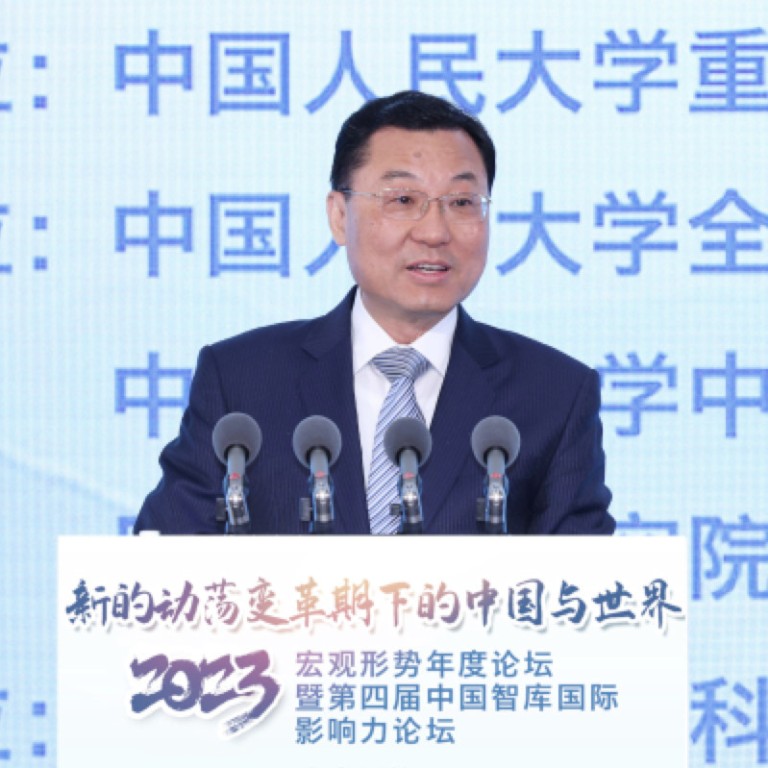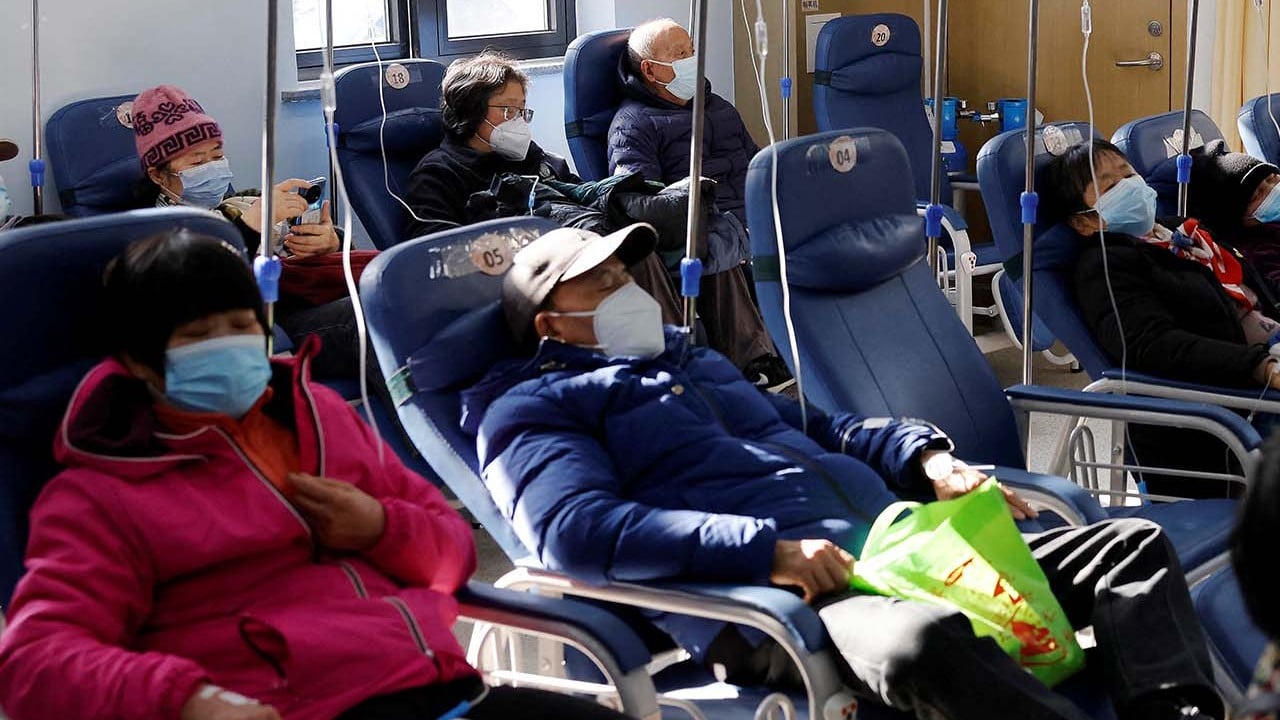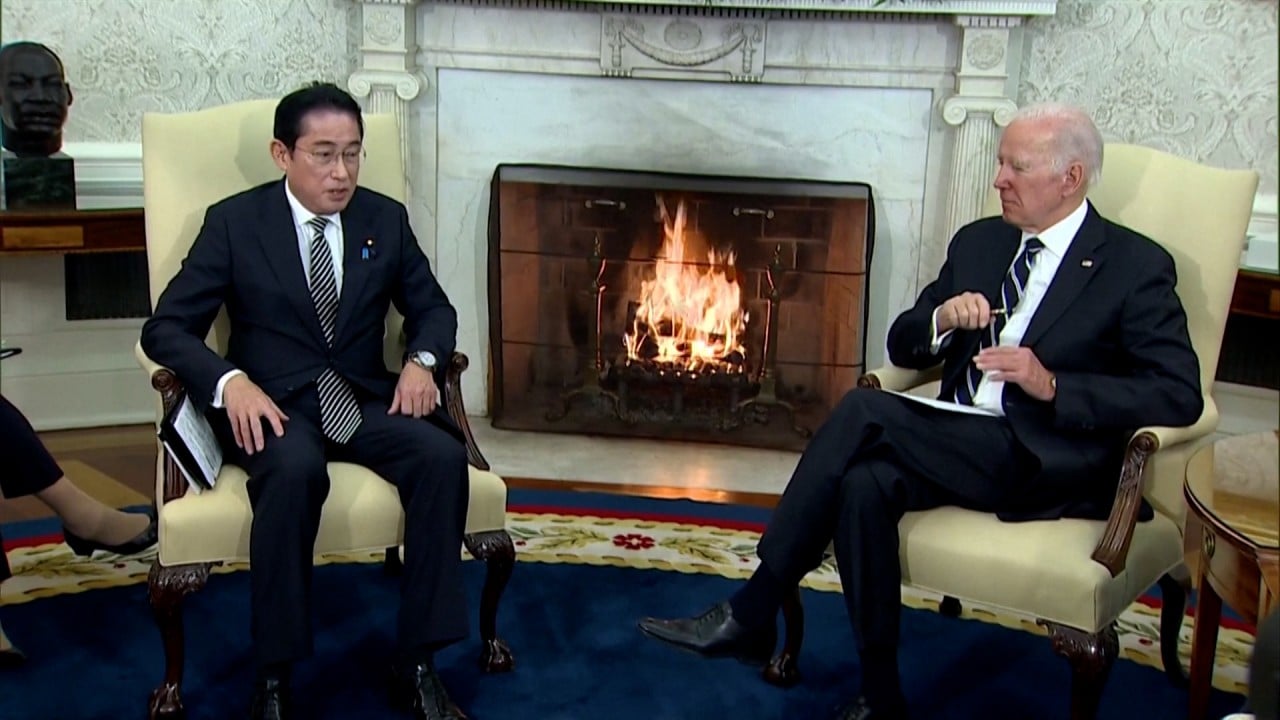
Don’t use tech as a weapon, China’s vice foreign minister Xie Feng urges US as Beijing opens borders
- Xie, widely tipped to be China’s next ambassador to the US, appeals for cooperation, not confrontation
- ‘Certain countries’ competing unfairly against China, he says
Xie, who is tipped to replace Qin Gang as the next Chinese ambassador to the US, accused “certain countries” of competing unfairly against China, including using restrictions on technology exports.
Technology should not be used as “a weapon for geopolitical struggles”, Xie told academics and foreign business leaders in Beijing.
“Competition should be fair and reasonable, with you catching up with me instead of you killing me,” he said.
“To win a competitive advantage, certain countries use the state apparatus … and violate the rules of the market and economic laws, waging tariff wars, trade wars, technology wars, chip wars and wars on rules in an attempt to suppress and deprive other countries’ rights to development, which is unjustified.”
Xie’s comments came after China made a sudden U-turn from its zero-Covid policy last month, after three years of strict restrictions. Quarantine requirements were scrapped for international arrivals from January 8, while Chinese citizens have been allowed to travel abroad.
Since then, local officials and entrepreneurs – particularly from the regional manufacturing powerhouses of Zhejiang, Jiangsu, Guangdong and Shandong – have flown to meet overseas clients as part of efforts to revive exports and attract foreign investment, which has been disrupted over the past three years.
During a meeting at the White House on Friday, Japanese Prime Minister Fumio Kishida told US President Joe Biden that he supported the administration’s attempt to tighten China’s access to advanced chips with export restrictions.
However, he stopped short of saying if Japan would match the sweeping export controls on key chip-making technologies and equipment that Washington imposed in October.
“Defining China as the most significant geopolitical threat, creating a small circle against China, following the example of containing the Soviet Union to suppress China, and besieging China through geopolitics such as the Indo-Pacific strategy – all these efforts are doomed to be futile,” Xie said.
Xie, 58, is a veteran US expert who has been the vice foreign minister in charge of Beijing’s matters with Washington since 2021. Previously, he served more than four years as the foreign ministry’s commissioner in Hong Kong.
Xie has been known to lay down Beijing’s red lines in Washington and had insisted that the White House take action to repair relations between the two countries during his 2021 meeting with US deputy secretary of state Wendy Sherman, who was among the first senior US officials of the Biden administration to visit China.
However, there has been speculation that China, now struggling in troubled ties with the US, India and Japan, may moderate its tone towards the US, though some experts doubt if any significant changes will happen.
China’s second-lowest economic growth since 1970s looms after virus-hit 2022
“When China strengthened its control during the Covid-19 pandemic, some countries asked China to open up, but now that China has opened up … these countries are instead imposing unreasonable restrictions on China, which the Chinese people do not understand,” Xie said.
“It is only natural that we should reciprocate with those countries that disregard scientific facts, engage in political manipulation and take discriminatory measures against China.”



